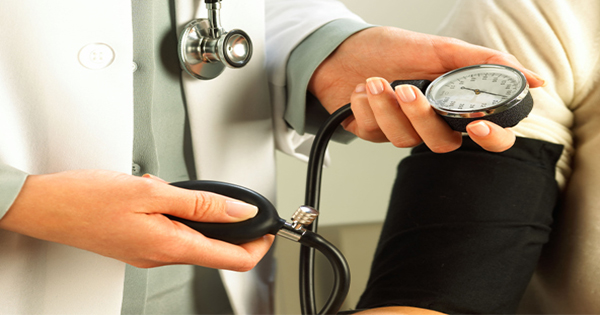What is a Normal Blood Pressure by Age?
 High blood pressure, or hypertension, does not always present with symptoms. You may have high blood pressure and feel perfectly fine. That is why it is important to regularly monitor your blood pressure to ensure you are within normal levels.
High blood pressure, or hypertension, does not always present with symptoms. You may have high blood pressure and feel perfectly fine. That is why it is important to regularly monitor your blood pressure to ensure you are within normal levels.
Your blood pressure reading includes a top number and bottom number. The top number is your systolic reading. This is the pressure blood exerts against artery walls when the heart contracts or beats. The bottom number is the diastolic reading. This measures the force against your artery walls when the heart is relaxed or between beats.
Your blood pressure will fluctuate throughout the day depending on changes in posture, stress, sleep, and exercise. Regardless of fluctuations, your blood pressure on average should remain less than 120/80 mm Hg.
Here are blood pressure categories as defined by the American Heart Association.
Normal blood pressure: <120 / 80 mm Hg
Prehypertension – 120-139 / 80 -89 mm Hg
Stage 1 High Blood Pressure – 140-159 / 90-99 mm Hg
Stage 2 High Blood Pressure – >160 / 100 mm Hg
Hypertensive Crisis – >180 / 110 mm Hg (seek emergency care)
Prehypertension increases your risk for developing high blood pressure. If you have prehypertension, this is an ideal time to assess your diet and lifestyle choices and implement changes to lower levels.
To be diagnosed with high blood pressure, only one number needs to be elevated. For example, if your diastolic number (bottom number) is less than 80, which is within normal, but your systolic number (top number) is greater than 140 then this would be classified as high blood pressure.
Changing Blood Pressure As You Age
A risk factor for high blood pressure is age. This is a risk factor you cannot change. You will get older. Increased age equals greater likelihood blood pressure levels will increase.
This does NOT mean a higher blood pressure is normal or healthy. Regardless of your age, your goal blood pressure reading is less than 120/80 mm Hg.
You need to be aware your risk for developing high blood pressure increases with age and take steps to prevent high blood pressure.
Here are steps you can take to counteract the effects of age:
- Maintain a healthy weight. If you are overweight, take steps to lose weight.
- Exercise daily.
- Reduce salt intake.
- Do not smoke.
- Consume a healthy diet.
For further guidance, access the free e-course 7 Natural Ways to Lower Blood Pressure at http://lowerbloodpressurewithlisa.com.
All the best,
Lisa Nelson RD
Health Pro for HealthCentral



